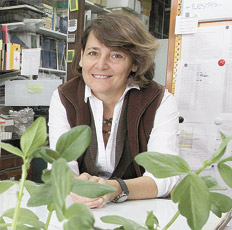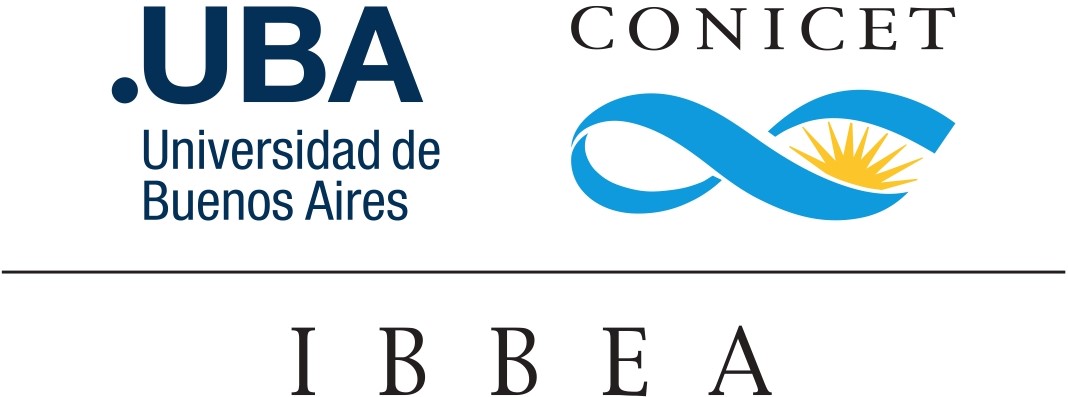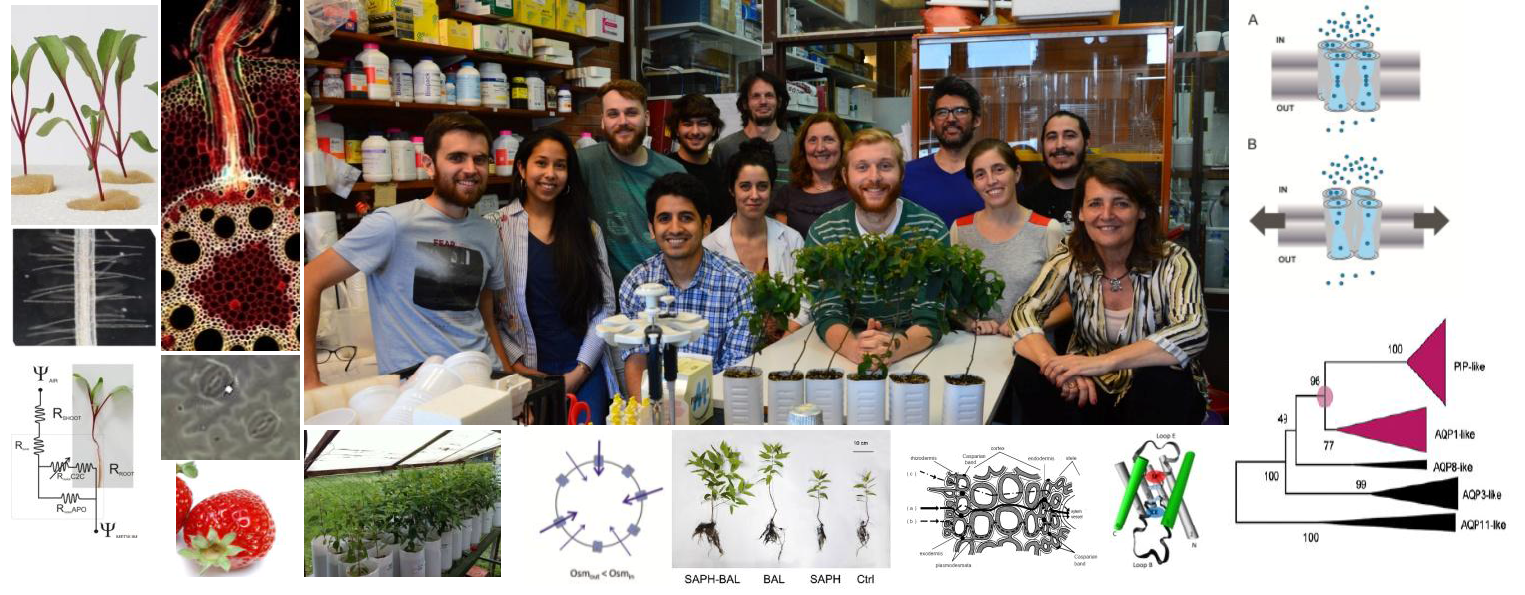Director
 |
Dra. Gabriela Amodeo Investigador Responsable, Dra. en Biología Universidad Nacional del Sur, Profesora Asociada BBE FCEN UBA, Investigadora principal CONICET, IBBEA amodeo@nullbg.fcen.uba.ar |
Our research group works in the area of plant physiology and biophysics, exploring water relations in vascular plants from the cell to the organismic level, studying not just model plants but also species with agroindustrial potential.
Our projects
Biophysics in aquaporins
Mechanosensitive aquaporins (Dr. Marcelo Ozu & Luciano Galizia)
The research project is focused on the biophysical properties of transport through aquaporins and their regulation. One of the less studied proposed regulatory mechanisms is mediated by changes in the mechanical state of cells. Our objective is to elucidate the mechanism of regulation of mechanosensitive aquaporins. The working group combines molecular biology techniques and experimental methods of biophysics of water and solute transport with mathematical modeling and computational simulation techniques.
Aquaporin gating (Dr. Gabriela Amodeo & Marcelo Ozu)
Our working hypothesis is that the different conformational states that affect the transport rate of water molecules can be detected by the methods used to study the gating currents of voltage-regulated ion channels. For this purpose we use different electrophysiological tools in aquaporins of different origin (animal, plant etc.), both native and mutant, designed ad hoc in a plan developed between two reference laboratories in their respective specialties: aquaporins (DBBE-FCEN UBA, Argentina) and the study of gating currents Dr. Carlos González León and José Antonio Gárate and (CINV, Univ. Valparaíso).
Plant water relations
The role of aquaporins in the regulation of shoot-root water balance and its impact in water use efficiency (Dr. Irene Baroli & Gabriela Amodeo)
The general objective of this project is to contribute to a comprehensive analysis of the mechanisms used by the plant to adjust its hydraulic properties and optimize the use of water. Understanding these mechanisms will facilitate the design of crop improvement strategies with better water management and tolerance to water stress. The strategy proposed to be followed to achieve this objective is to gather comparative information in different plant systems in which the root / shoot relationship has been modified at the level of hydraulic behavior and by analyzing the results together to be able to conjecture about the mechanism or mechanisms. root-stem water adjustment.
Study of water relations and characterization of water transport in Sorghum bicolor (Dr. Moira Sutka & Gabriela Amodeo)
Our general objective is to study the characteristics of water transport in Sorghum bicolor at the level of the whole plant, a species of great agronomic interest. We study the role of the cellular pathway, the contribution of its water channels both under normal conditions and in the face of different types of stress. We analyze the different strategies of two varieties of sorghum against water stress and how they manage water under salinity conditions. On the other hand, we compared the responses with the Beta vulgaris plant model in order to build a water management model in two species with different mechanisms of action against exposure to saline soils.
Developmental and technological projects
Water and nutrient management in Eucaliptus seedlings employed in forestry. In collaboration with Dr. Mercedes Perullini (DQIAQF e INQUIMAE FCEN UBA) and Dr. Patricio Santagapita (CIHIDECAR y QO FCEN UBA)
⇨ Positions are open for PhD program as well as short term student interships

